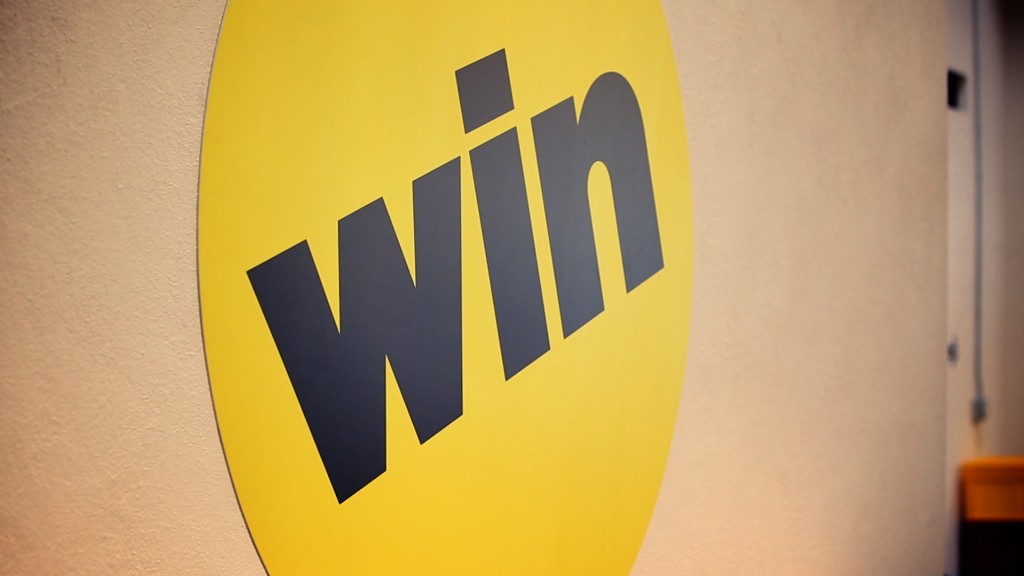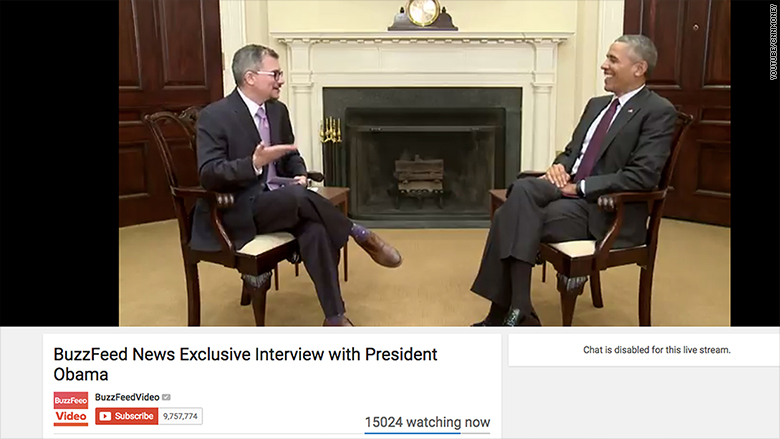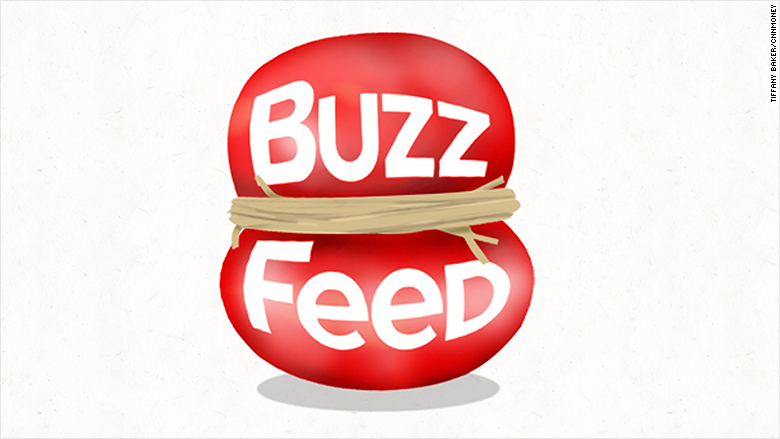
Early last year, BuzzFeed CEO Jonah Peretti wrote a blog post titled "Why BuzzFeed Does News," a battle cry for journalism that had the unintended effect of unnerving some members of the news division.
By then, BuzzFeed News had been humming for three years. It lived within a larger apparatus of entertainment content — which, Peretti's post acknowledged, was a much bigger business. But it was the quality journalism that made the site an industry darling.
"News is the heart and soul of any great media company," Peretti wrote. "News might not be as big a business as entertainment, but news is the best way to have a big impact on the world."
Privately, Peretti also told employees that journalism was essential to maintaining the brand's credibility. When BuzzFeed went courting global companies for ad deals, BuzzFeed's commitment to news could be a difference maker. It gave the company prestige. Plus, Peretti said, he liked journalism, and since BuzzFeed could afford it — why not?
It struck some employees as odd that the CEO felt compelled to invoke lofty rhetoric to justify why the company had a news division, but those explanations sufficed at the time.
The trouble now is that the business proposition of BuzzFeed's journalism is increasingly in question, according to several current employees and sources with knowledge of the company's plans.

Last month, the Financial Times reported that BuzzFeed came up $80 million short of its projected revenues in 2015 (at $170 million) and had been forced to slash projections for 2016 in half (to $250 million). BuzzFeed disputed those numbers, but wouldn't provide specific alternatives.
Related: BuzzFeed buzzkill: Its stunning revenue miss goes viral
Meanwhile, BuzzFeed is increasingly staking its future on video, where entertainment is top priority. At the beginning of 2015, video accounted for 15% of the company's revenues. Today, it's approaching 50%, according to a company spokesperson. Peretti even moved to Los Angeles last year — for personal reasons, he said, but also because BuzzFeed's L.A.-based video division was the "fastest growing team" at the company.
Taken together, the reduced revenue projections and the shift to video signal a shift in the balance of power that favors entertainment over journalism. Many industry observers and some staff believe that BuzzFeed will eventually curtail or even jettison its news division in order to focus on more profitable revenue streams.
"The halo that BuzzFeed got from 'News', they don't need it any more," said one media executive who is familiar with BuzzFeed's plans. "Entertainment, video, production — that's where the money is, that's where they can get growth."
BuzzFeed News is in "retrenchment," one senior member of the BuzzFeed editorial staff said. "The growth mode has stopped."
"People have definitely been concerned that video is going to replace reporting," said another.
Peretti dismisses the idea that BuzzFeed News is retrenching, as does BuzzFeed editor-in-chief Ben Smith and BuzzFeed News executive editor Shani O. Hilton.

"We are a global, cross-platform media company for news and entertainment," Peretti said. "Like most big media companies, we are able to do both."
"A lot of people see a tension where there isn't one," said Smith. "You have two different successful parts of the company... TV has historically been able to spend an enormous amount of money on both."
On Monday, BuzzFeed even announced that it was building a New York-based team to experiment with news video.
Peretti and Smith are right, up to a point. Traditional media companies — take, for example, ABC and Turner — have always had news divisions (ABC News; CNN) that exist alongside entertainment brands (ABC Entertainment; TBS and TNT).
Related: BuzzFeed tried to live-stream interview with Obama, but something went wrong
While news content has generated major advertising premiums and revenue for these hybrid companies, BuzzFeed News doesn't generate a quantifiable advertising premium for BuzzFeed, which is why it's vulnerable. Mashable, a much smaller company, recently cut its news staff in order focus on video.
Journalism is expensive. Good reporters cost money and they take time to produce good content. Very often, that content wins praise from fellow journalists on Twitter, but doesn't drive much traffic. Go to BuzzFeed's trending stories list any given week and count how many of the stories there are quality journalism, as opposed to lists, quizzes and videos.
"If you're BuzzFeed, why would you spend a lot of money to hire one reporter who creates low-traffic news when you could use that money to hire three kids who churn out high-traffic videos?" one media executive asked.
Related: BuzzFeed says 'Black People' video was 'mistake'
Perhaps no one will be more affected by the impending changes than Smith, who is responsible for giving BuzzFeed its prestige in the news industry. Before 2012, BuzzFeed was just another click bait site. When he came on board, countless articles were written about how he'd transformed it into a serious competitor by hiring dozens of young reporters and producing quality journalism.
"With the addition of Mr. Smith and his new hires," The New York Times reported in 2012, "BuzzFeed is growing some serious news muscles under a silly, frilly skin."
The story has since changed. In February, Fast Company wrote a 5,000-word article about BuzzFeed's future — almost entirely about video — that mentioned Smith exactly once, in parentheses, in the 29th paragraph.
Video is a safer bet, to be sure, especially because BuzzFeed keeps video costs low in order to produce lots of content and learn what works — which has always been the operating principle at BuzzFeed. Meanwhile, NBC, which bought a $200 million stake in BuzzFeed last year, is primarily interested in the company's video offerings. Last month, it announced that BuzzFeed would be producing special Olympic features that would publish across platforms.
There is also real advertiser interest. Mondelēz, the global food and beverage conglomerate that is among the world's top advertisers, recently agreed to sponsor BuzzFeed's new food website Tasty, which will rely heavily on video.
But video isn't a sure thing for BuzzFeed. Despite the concerns of industry Luddites, the fact that tens of millions of people watched two BuzzFeed employees wrapping rubber bands around a watermelon until it burst last month doesn't mean BuzzFeed has figured out a durable video model.

"There is a term in the video ad market separating 'prime video,' which is traditional television, from what is now being called 'subprime video,' which is much of the internet (exploding watermelons, etc.)," said Michael Wolff, the veteran media columnist. "Nobody knows how to make video work, and now they are staking their futures around it."
"The numbers are impressive, but is this actually driving any kind of business?" asked one prominent New York media executive.
The good news for BuzzFeed, the same media executive said, is that they're flexible and have backers behind them.
But the money and the resources BuzzFeed is now pouring into video are largely geared toward entertainment, not news.


